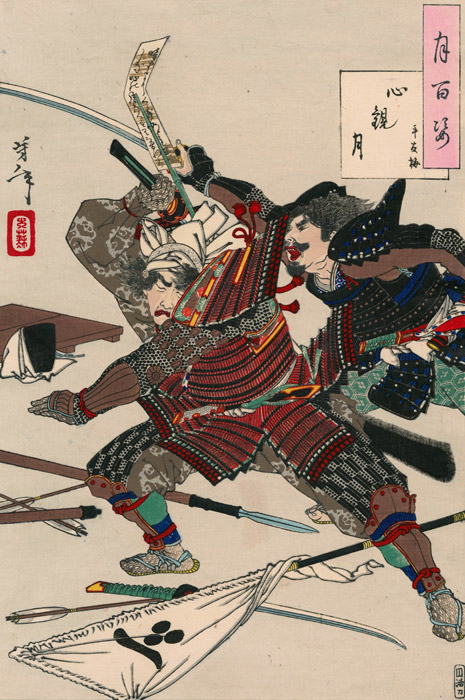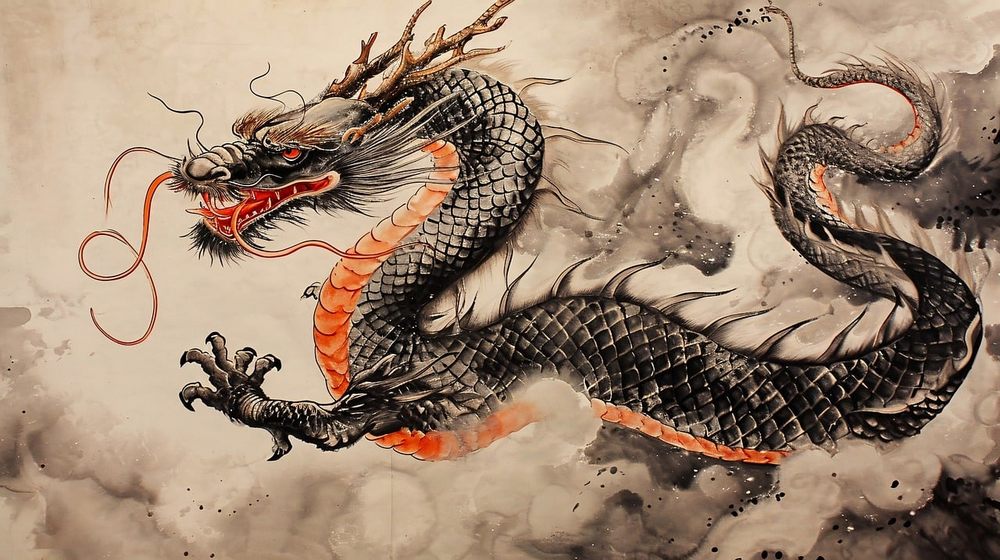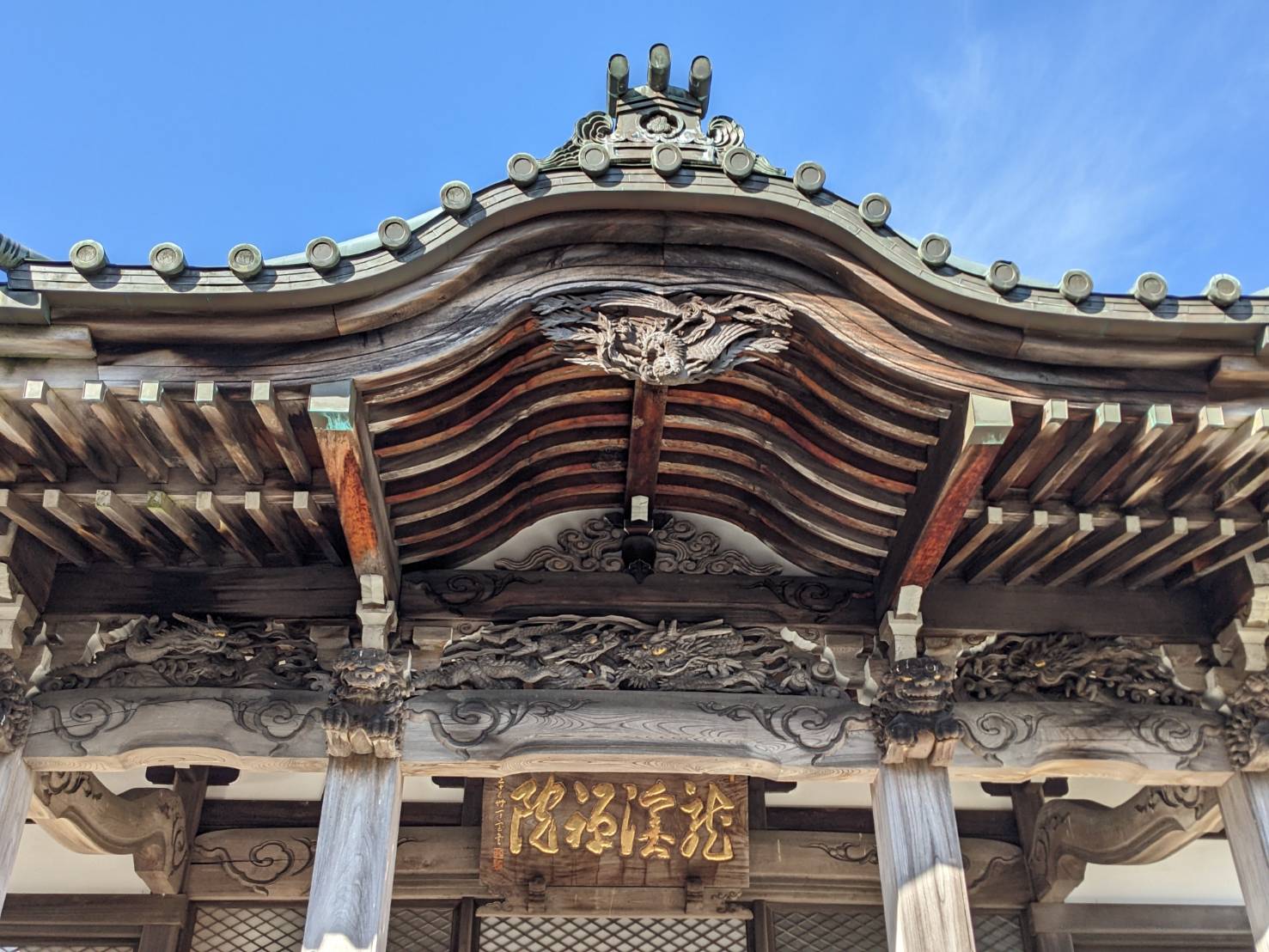The Red Cow of Ike
The tale of a shape shifting, murderous dragon lord
Folktales are a mix of fact and legend, but in most cultures they generally serve the same purpose: to teach values and morals. Japan’s traditional folktales are called mukashi banashi (stories from long ago). Each region has its own mukashi banashi, and many are variations of a similar story.
Here is Izu, in the southern part of Ito, in the foothills of the Amagi Mountain Range, lies a small village called Ike. It’s a small, quiet community with two Shinto shrines and a Buddhist temple. Ryukeiin had its 500 year anniversary in 2020. Before that time, legend says that it replaced an even older temple that was haunted by a murderous red cow.
The Red Cow of Ike is the most famous folktale from Ike Village. A version of the tale was even chosen for an episode of the very popular and long run TV program called Manga Nihon Mukashi Banashi – Animated Folktales of Japan. You can watch the episode (in Japanese) on YouTube. This version is different from the one below.
The Red Cow of Fukusenji Temple
This story takes place in the 17th year of Eisho (1520), about 500 years ago.
In the village of Ike, in the domain of Izu, there was a large pond brimming with water. The pond was sandwiched between two tall mountains: Mt. Omuro to the east, and Mt. Yahazu to the west. About 14 chō (~1.5km) beyond a river that flowed through the valley, there was a small temple called Fukusenjii that had served the village for as long as anyone could remember.
When their work in the mountains was done, the villagers would stop near the temple on their way home, take off their packboards, and sit down to catch their breath.
“I wonder if another priest will show up at Fukusenji this month . . .”
“If the next priest to stay the night doesn’t come out the next morning, that’ll make seven.”
“It’s the dragon lord that’s been living in that pond for a thousand years. It turns itself into a red cow and eats anyone who comes near the temple.”
“Fukusenji is full of ghosts! Those monks must have been eaten alive.”
“Horrible! So horrible!”
The villagers would murmur such things among themselves, then hurry home before dusk.
In those days, the country was always at war. Wandering samurai were constantly fighting for their lords, and there was no end to the battles. Every day, many people died.
Yoshitaka Izumi, the third son of Ryuoki Saito, a samurai from the Mino Province, became weary of the endless killing. Finally, he decided to shave his head and become a monk in order to pray for the souls of those who died.

In late autumn, Yoshitaka left Mino and began to walk east, visiting temples deep in the mountains of Mikawa, Toe, and Suruga Provinces.
When Yoshitaka descended from the mountain road near the village of Ike, the setting sun had almost descended behind Mt. Yahazu. He stared down at the surface of the pond, awash in the red sunset. Soon, the reflection became a blazing city of fire. Women and children were running for their lives, and one by one they were swallowed up by the flames. Yoshitaka’s heart ached as he watched them.
Soon the sun disappeared, and the flames quickly extinguished. All that remained was a silence spread over the water’s surface.
Yoshitaka came back to himself and impulsively clasped his hands and began to chant sutras. At that moment, Yoshitaka heard someone behind him call out, “Hello, priest.” He turned his head and saw a group of villagers standing there.
“Traveling priest. I suspect you’ll want to spend the night at a temple, but the only temple in this village is Fukusenji. Of course we can’t prevent you from staying there, but Fukusenji is a terrible place…”
The villagers urged Yoshitaka to stay in one of their homes for the night. “Then I’ll take your word for it,” Yoshitaka said, clasping his hands in thanks and leaving the pond with the villagers.
After eating, the villagers sat with Yoshitaka and told stories of the dreadful Fukusenji late into the night. Suddenly, the sky brightened and dawn had come. “Thank you all very much for your help last night. I’ll try to visit the temple now. Even if just a little, I’d like to return your kindness”.
Sensing the firmness in Yoshitaka’s decision, the villagers gave up protesting and showed him to the temple. Yoshitaka separated from the villagers near the outskirts of Fukusenji and went on toward the temple alone.

The old temple was thoroughly in ruins. Yoshitaka enterered and sat down facing the dusty statue of Buddha in the main hall and began to chant quietly. He continued to chant sutras, oblivious to the passing of time until at some point, his surroundings became enveloped in darkness.
Suddenly, he heard the high-pitched bellowing of a cow coming from the temple grounds. The bellowing soon turned into a low growl. Yoshitaka stood up quickly, went out from the main hall, and looked into the temple’s garden.
In front of him was the biggest cow he had ever seen. It was colored in the same red he had seen last night. Water was dripping from its body as if it had just emerged from the pond. When the cow quieted down, Yoshitaka said, “When you assume that kind of shape, it’s impossible to understand what you’re trying to tell me. If you have something you want me to hear, it would be best to come back when you are able to speak.”
The red cow listened intently, and when Yoshitaka had finished speaking, it slowly stood up, turned around, and shuffled away through pampas grass, disappearing toward the outskirts of the temple.
Yoshitaka returned to the main hall and continued to chant sutras again as if nothing had happened.
After a while, he heard the vague sound of a human voice coming from the temple grounds.
“I’m sorry.”
Yoshitaka stood up quickly and went out again to the wet garden. There, he saw a vague, white, human figure with sparkling eyes floating inside the pampas grass. It was a young and beautiful woman.
“We can’t speak comfortably here. Please come this way,” Yoshitaka gently said to the woman. She followed Yoshitaka into the main hall, sat down facing him, and began to speak slowly.
“I am the dragon lord of the pond that stretches across this village. I have lived a full thousand years, but in all that time, I have not been able to learn the teachings of the Buddha. Just once, I would be very grateful to experience those teachings. With that desire in mind, I came to the priests of this temple to request their guidance. Alas, they were horrified by my appearance and even tried to burn me to death with torches. I had no choice but to kill and devour those priests.

“I thought to myself, ‘If I take the form of a cow, maybe the monks won’t fear me.’ Thinking thus, when I heard chanting coming from the temple, I turned into a red cow. However, the priests must have thought I would stab them with my horns. Just as I had feared, they too became horrified.”
When she finished speaking, the young woman began to cry, her voice shaking with the horror of what she had done. Yoshitaka went to her side and chanted a sutra that says if you give up everything and chant intently, you will receive salvation.
The young woman closed her eyes, put her hands together and listened intently. Her muffled voice overlapped with Yoshitaka’s chanting, and eventually their voices became louder and louder.
After they finished chanting the sutra, Yoshitaka told her all about the Buddha’s teachings. She kept her hands clasped together and listened quietly. When Yoshitaka finished, she bowed her head again and again, stood up slowly, and walked away without making a sound.
The sky in the east became brighter and brighter, even as night began to fall. Yoshitaka walked back along the road to the village, feeling refreshed.
The villagers were waiting for him at the spot where he had left them the day before. When they saw Yoshitaka in the distance, they rushed to him. He began to slowly recall the events of the previous night. The villagers nodded and listened attentively. Every once in a while, a loud sigh escaped their lips.

“And that is how the story ends,” Yoshitaka said.
As if they had been waiting for these very words, the villagers began to plead with him.
“Monk, please stay in this village and teach us the Buddha’s teachings.”
“Since Fukusenji has become a desolate temple, I have completely forgotten how to chant the sutras.”
“You are such a noble monk that even the dragon lord of the pond listens to you. Everyone can see.”
Yoshitaka gently placed his hands on his chest. He a great relief and knew that his training had come to an end. Alas, he decided to accept the wishes of the people of this village.
Eventually, a temple was built near a place surrounding the pond where there had once been a smaller temple. The new temple was named Ryukeiin¹. The red cow/dragon lord, which was guided by the Buddha, is worshiped as the guardian deity of the temple and the village of Ike. Even today, it gently watches over the village.
Fukusenji Temple was abandoned, and now only scant traces of its ruins remain.
____________
¹ The first kanji character in the temple’s name is ryu, which means dragon. Ryukeiin (龍渓院) means something like ‘Dragon Valley Temple.
終 The End
To learn more about the village of Ike, including a live reading of The Red Cow of Fukusenji, join one of Jimmy’s Izu Tours:
All that remains of the ancient Fukusenji temple is a five stone memorial, and a historical marker.
The sign barely mentions the temple, and instead focuses on the stone memorial.
“Stone pagoda (five-ring pagoda) at the entrance of Fukusenji Site
This pagoda is called a “stone pagoda,” but it is thought to be a “five-ring pagoda” rather than a mere stone pagoda.
If the bottom stone is called “Shimodai” and the next is called “Kamodai”, then the top is called “Godai”, which means “Five Elements” in ancient India. Earth * Water * Fire * Wind * Sky.
Ike Historical Research Association, November, 2008″




wonderful story! great place to visit with Jim